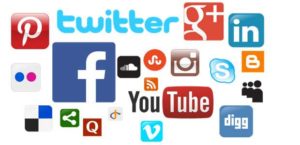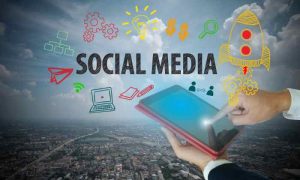Social Media, Mental Health, and the Virtual World

Despite recent attempts to begin to reopen the country and reactivate the economy, almost two-thirds of the population of the United States continues to be in lockdown due to COVID-19. In an attempt to maintain some semblance of normalcy, Skype, Whatsapp, Zoom, and other virtual meeting software have become commonplace for work meetings, school classes, child play dates, and everything in between.
Predictably, children, adolescents, teenagers, and adults are also spending an increasing amount of time connected to the internet and using social media. While Facebook, Instagram, Twitter, and Snapchat certainly do allow for some sense of connection in these trying times of social distancing and lockdown, there are also serious concerns regarding the effects of social media on mental health. Understanding these risks and creating boundaries and limits is an essential element of caring for our mental health as the current pandemic plays out.
How Much Do We Rely on Social Media?
It is hard to fathom that just a couple of decades ago, social media and the internet didn’t take up any of our time. Today, the average digital native, or a person who was born into a world dominated by the use of the internet and social media, often spends the majority of their day connected to the internet.
The American Time Use Survey published by the U.S. Bureau of Labor Statistics finds that the average high school student in the United States spent almost three hours of “likely screen time” during their weekends, and most of that time was most likely dedicated to social media browsing. Comparatively, only one hour and six minutes was dedicated to “in-person socializing” and only 49 minutes to exercise.
The increasing presence of screen time and social media does have indirect consequences on our physical health and might contribute to the ongoing childhood obesity crisis. However, the main threat of increasing social media use is related to our mental health.
The Dangers of Emotional Connection
Routine use of social media channels has become widespread and commonplace. Scrolling through a Facebook account in the morning might be a simple way to check up on friends and family, read a few news articles, and even check the weather for the day. Especially during the current national lockdown and social distancing measures, this routine use of social media is generally considered to generate positive or neutral health outcomes.
However, a recent national sample of American adults found that the emotional connection that we invest in social media is often linked to negative health outcomes. Instead of simply using social media to chat with a distant friend who is studying abroad on the other side of the planet or to read a news article that we find interesting, many people invest important emotional capital in our social media use.
Social media content is often staged in an attempt to create an idyllic representation of how we want others to visualize our lives. An adolescent or teenager who obsessively consumes image after image of the happy and seemingly perfect lives of their friends will often fall into a sense of depression when they find that their lives are not “on par” with those of their contacts.
This emotional connection that arises from constant comparisons can lead to depression, anxiety, and further withdrawal.
Furthermore, it should be a cause for concern that the average American high school student spends at least three times as much time on social media and the internet than engaged in in-person socializing. We are social beings and extracurricular socializing outside of school and work are essential for healthy childhood and adult development.
The Challenges Presented by the Current Pandemic
The current pandemic has shuttered businesses, schools, and virtually all other extracurricular activities. While these measures are a temporary attempt to reduce the infection curve, one of the threats is that the “virtualization” of social life could become normalized. Already, universities and colleges across the nation are moving towards online classes for the fall semester. Many businesses are finding that some workers can be just as productive and effective when working from home.
Even parents are discovering that their child´s dance classes and playdates can effectively be organized with a Zoom account and a decent internet connection.
The normalization of virtual, screen-based relationships and the increasing presence of social media in our lives will most likely have far-reaching psychological and mental health effects. Once the current lockdown and social distancing rules are relaxed, making an effort to reestablish face-to-face socialization should be a priority for everyone who values their mental health.







